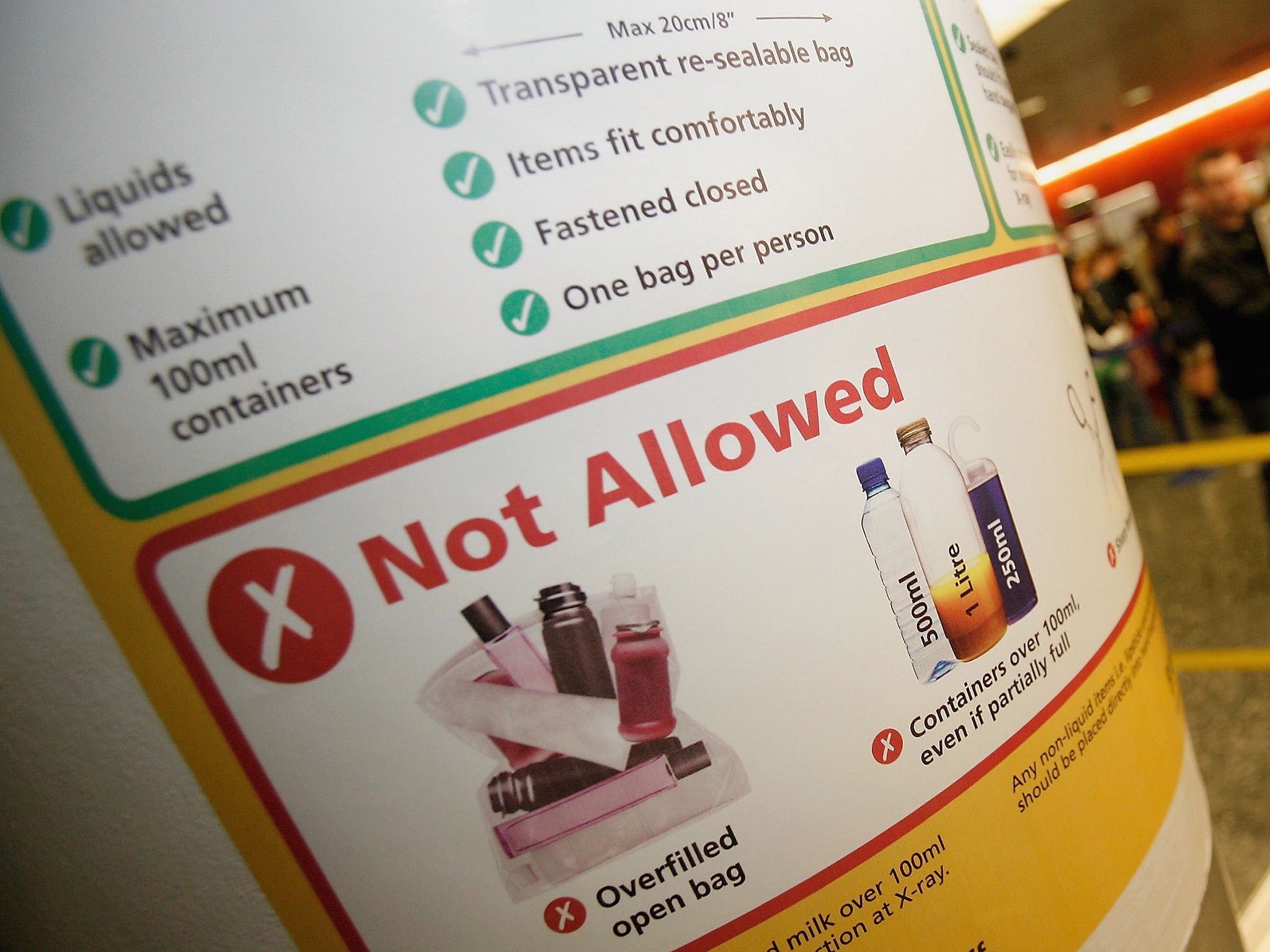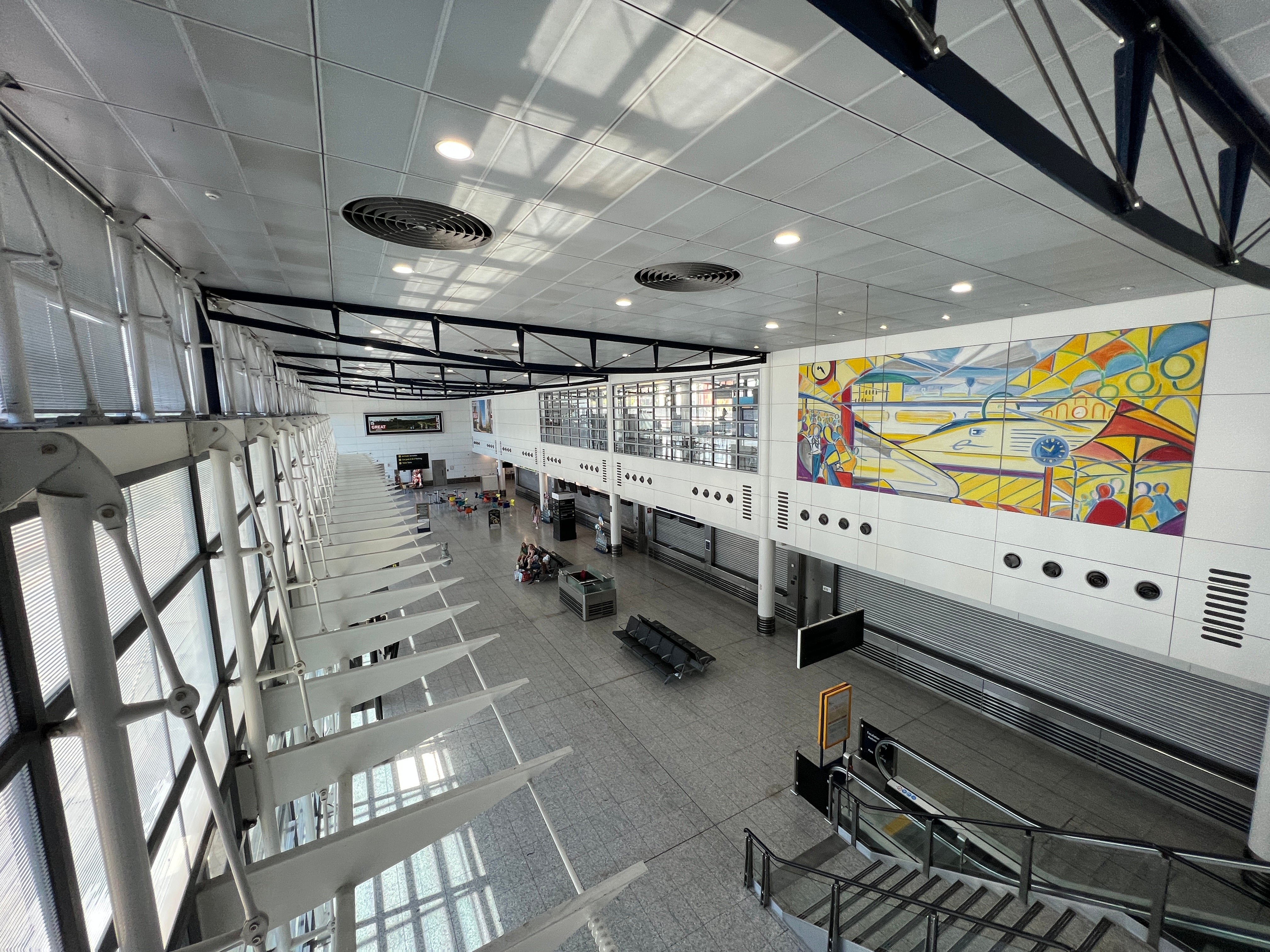What are my options if I can’t get travel insurance?
Simon Calder answers your questions on policies, 100ml liquid limits and the future of Ashford International


Q I am looking for some advice on travel insurance for people of a more mature age with health and medical problems. A relative is in her sixties and wants to travel to Spain or Greece for four days. But she is struggling to find affordable travel insurance. She has a number of conditions including a previous episode of deep-vein thrombosis, high blood pressure and ongoing bronchial problems.
When seeking travel insurance ahead of the trip, several insurers turned her down flat, and the only one that was prepared to cover her quoted £800. Can you advise me of any insurers who offer better value?
Name supplied
A Needing to pay more for travel insurance than for the trip itself costs sounds extreme – but I am afraid it reflects the level of risk that insurers assess for travellers who have serious pre-existing medical conditions. Experience will have told the people who calculate premiums that older travellers with a medical history of serious illness represent a substantial risk of an expensive claim. As I have mentioned in this column before, the online British Insurance Brokers Association’s Travel Medical Insurance Directory can help. But given the possible destinations of your relative, let me offer a rational alternative: to take a positive decision not to insure.
Even after Brexit, British travellers are entitled to medical treatment on the same basis as local people in all 27 European Union countries. The UK Global Health Insurance Card (Ghic), obtainable free, will entitle her to free or very low-cost treatment at a public hospital in both Spain and Greece; if she has an existing European Health Insurance Card (Ehic) that is still in date she can use that. The card does not cover private medical health care, nor an air ambulance back to the UK. And of course, it does not protect against loss, theft or cancellation. (She should not book until just before departure to minimise the risk of loss if she cannot travel.)
Anecdotally, I know of travellers whose existing medical conditions or advanced age means policies are very expensive, and instead choose to rely upon their entitlement to reciprocal medical treatment instead of travel insurance. If and when the time comes, I intend to do the same.

Q I am hearing lots of talk about the 100ml liquid restriction through security at UK airports being relaxed. But I can’t find a definitive answer: some sources say it changed at Easter, others that it won’t change until June. I am due to fly from Manchester airport next Saturday. Can you help?
Charlie B
A Your confusion is understandable. A series of announcements about easing the much-loathed limits on “LAGs” (liquids, aerosols and gels) at airport security have spread much confusion.
The first was made by then-prime minister Boris Johnson in 2019. He vowed that the rules limiting liquids to 100ml containers, in a single small, resealable bag, would be lifted at major UK airports by 1 December 2022. This was to be achieved by deploying expensive scanners using computed tomography (CT) – the same technology as medical scanners. These machines can analyse the molecular structure of the contents of a passenger’s bag, detect any potential threat and present security officers with a three-dimensional image. They can also work out whether laptops and other electronic equipment present a danger. At airports where the technology is used, liquids and laptops no longer have to be removed.
The deadline was missed, partly due to the crushing of airport finances by the Covid pandemic. Rishi Sunak’s government then set a new requirement for the new technology to be in place by June 2024. This is still the plan. But there is nothing to stop individual airports stealing a march on rivals ahead of that deadline – and, just before Easter, two UK airports did just that.
Teesside in northeast England and London City in the east of the capital no longer require travellers to deconstruct their cabin bags. Passengers at the Docklands airport told me of their stress-free progress through the checkpoint, And airports say it strengthens security as staff have closer scrutiny of items being taken “airside” and can focus on passenger behaviour.
The problem is: travellers who fly out from these airports won’t necessarily have the same experience coming back. As the equipment is rolled out haphazardly across the UK and the rest of the world, confusion is likely to increase. So wherever you are flying, anticipate the worst (ie continued compliance with the LAGs rules imposed in 2006) and be pleasantly surprised if you enjoy light-touch security.

Q Do you think Eurostar trains are likely to ever use Ebbsfleet or Ashford International again?
Name supplied
A These are the two stations in Kent on High Speed 1, the line from London St Pancras to the Channel Tunnel. They closed at the start of the Covid pandemic as traffic slumped. Three years on, they have not reopened. Eurostar, which previously called at these stations en route to Paris, Brussels and Lille, says they will be mothballed until at least 2025. The reason: Brexit.
The company told me: “We must focus on our most profitable inter-capital routes to enable us to meet our financial commitments, stabilise our operation and our customer experience, before considering any further developments. Our border environment has also toughened post-Brexit, and further complexity is expected with the launch of the EU’s Entry Exit System.”
This latter issue, requiring (at the UK’s request) British passport holders to be photographed and fingerprinted, is already causing dismay among cross-Channel operators, and last week led to the cancellation of the British leg of the Venice Simplon-Orient-Express from next year. The space and time involved in processing passengers are sure to increase. Gareth Williams, strategy director for Eurostar, told peers on the House of Lords justice and home affairs committee last year: “We do have a very extreme space challenge.”
Having said that, there is certainly a role for Ashford station in the medium term. It was remodelled at a cost of hundreds of millions of pounds to accommodate international services. It has connections from many stations elsewhere in southeast England, including Canterbury, Ramsgate, Dover, Maidstone, Tonbridge and Hastings. At present, anyone boarding at those stations – or Ashford itself – must travel away from France to London before retracing their steps. That is the sort of nonsense that the station was designed to avoid.
If Eurostar does not reopen it in a couple of years’ time, I like to think that a new entrant may come in and set up a low-cost link from Ashford to Marne-la-Vallee, east of Paris – already used for Ouigo budget high-speed trains – via Paris Charles de Gaulle airport. A journey time of under two hours would appeal, especially if combined with cheap tickets.
I fear, though, that Ebbsfleet – basically a park-and-ride for M25 users – will not return to the schedules any time soon.
Email your question to s@hols.tv or tweet @simoncalder


Join our commenting forum
Join thought-provoking conversations, follow other Independent readers and see their replies
Comments